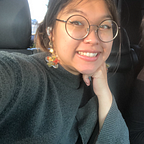On Writing History
It is very rare that we learn about information of the past that is presented to us without any sort of sociopolitical bent. Looking back at the conditions in which marginalized groups in Japan such as the Koreans, buraku, and Okinawans lived under, we often label their struggles as issues of class, origin, and gender, but in labeling their experiences, do we glaze over the intrinsic value of their hardships? I believe in many cases, by assigning movements and larger political contexts (that were not necessarily the motivation for their responses or ideologies they identified with), we place their unique experiences under the agenda of those sociopolitical ideologies. On the flip side, we also see accounts of history through the lens writers of history and their own agendas and biases. Particularly in the case of women’s issues, there is such a wide scope of intersectionalities that play into each individual’s plight, that many women’s voices are silenced in the generalizations that often occur. For example, in the case of the two Korean women who committed suicide together, the news reported their deaths with a homoerotic undertone can be seen as a rare account of a long-lost homosexual relationship between two women oppressed by the world they live in, or it can be understood as the Japanese media’s propagation of Koreans as moral “degenerates” in Japanese society (in the context that homosexuality was considered deviant or morally wrong). For whatever reason the writers of that article chose to write it that way, there is an obvious agenda (that is not necessarily apparent) to their words. We do not know if these women were sisters, or friends, or lovers, or strangers, but we do know that the events and social environment that brought them to the choice of suicide were extremely complex. Whether there was any specific meaning or or message that suicide would send, it makes me wonder what the women would have told us about their lives if they could. From a women’s rights perspective, one might say that their deaths were symbolic of the larger oppression the felt as a result of the patriarchal society they lived in; from a colonial perspective, being treated as a lesser person because of one’s origins contributed to the helplessness they felt against a system that was not meant for them to flourish. These are both examples of critical lenses that we might have today, but what if these women had other motives that we cannot understand without being in their shoes and living their lives? What if the two women were actually murdered and the police covered it up as a suicide? As we ask more questions about what is safe to assume about history, we understand that the real meaning of anything lies within the words of the one who lived it. This has larger ethical implications in that it drastically changes the way that people’s realities are represented and honored after their deaths. When we analyze the gaps in history, assumptions are virtually unavoidable. However, it is how far we go with those assumptions that takes away the power of the voices of history. I think something that we must be actively cautious of in retelling and constantly aware of in reading is whether our versions of history might be used to propagate ideologies, agendas, and systems that do not honor the lives that people lived and the deaths they died living as they were in their own strengths.
To put this in a culturally relevant scenario, I wonder if it will be deemed significant to people that consume the COVID-19 pandemic as a scene in history that this year brought me some of the best grades in my college career and the worst mental health episodes in my life. For many who are living the college experience, the testing and grading policies have been updated to be more flexible and accommodating for the uncertain circumstances, but what of the mental instability that many students are currently experiencing, some for the first time? Scholars of the future might look at it from a political lens and see the ways that many college students were affected by the legislative policies (or lack thereof) that led to loss of jobs, deaths of loved ones, and home evictions. Sociologists and psychologists might analyze how social conditions created stressful situations that forced the lives of college students to lack normalcy. Those interested in class relations might use the stories of lower income students to show the disparity in stressor differences among socioeconomic statuses. All three of these cases represent some sector of the college student population, but there are many people that are exceptions from the assumptions that those interpretations miss. Without too much extrapolation, each of these interpretations can capture the lived experiences of people without overstepping their unique experiences, however, using their stories of their struggle with mental health to push the narrative that the lockdown was a useless and abusive exercise of governmental authority would erase the stories of the students that did not feel that way at all. What is problematic here is the weaponization of stories that do not belong to the hypothetical future historians and the same problem is something we must also avoid today when recounting histories that are not ours.
